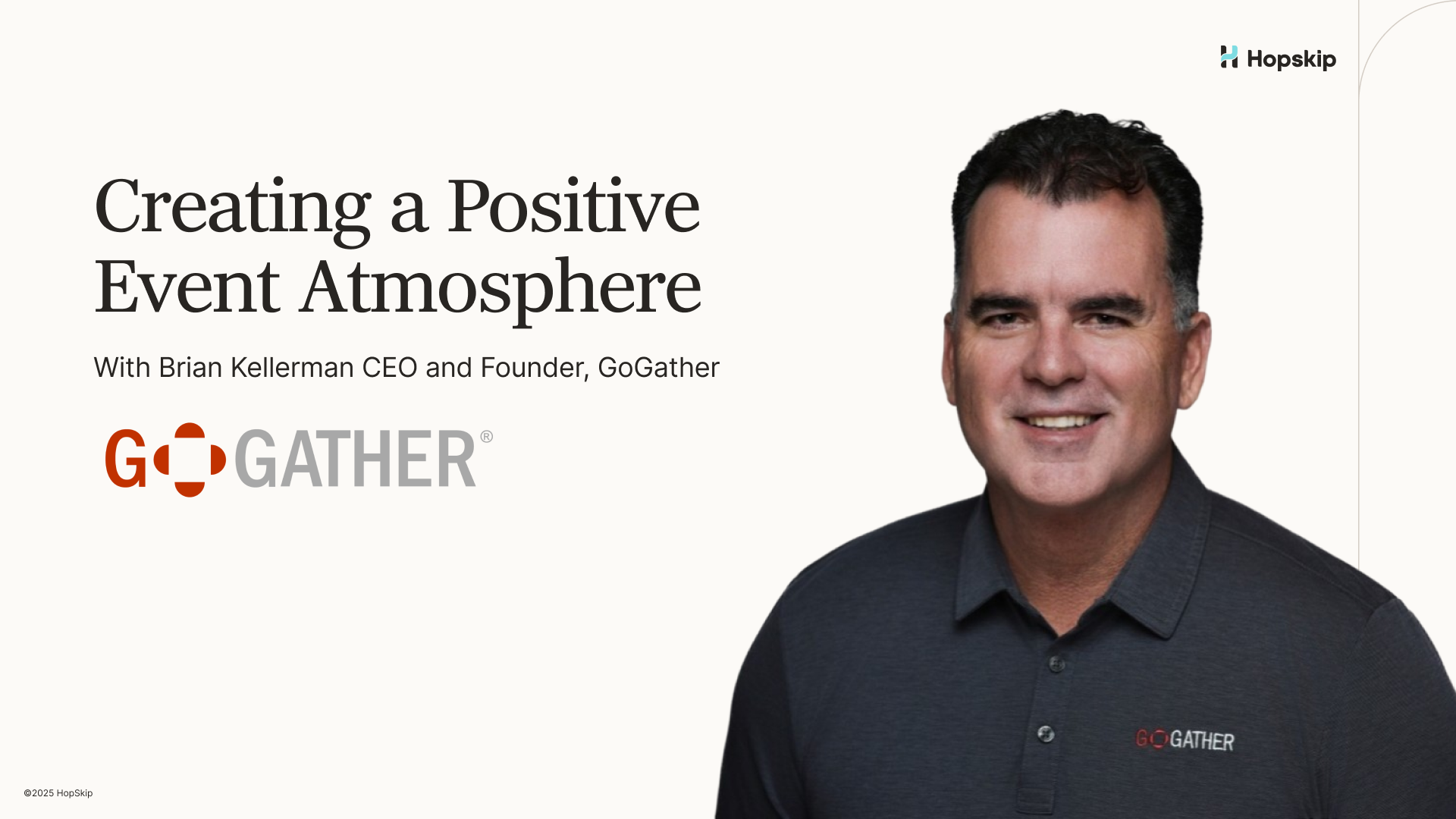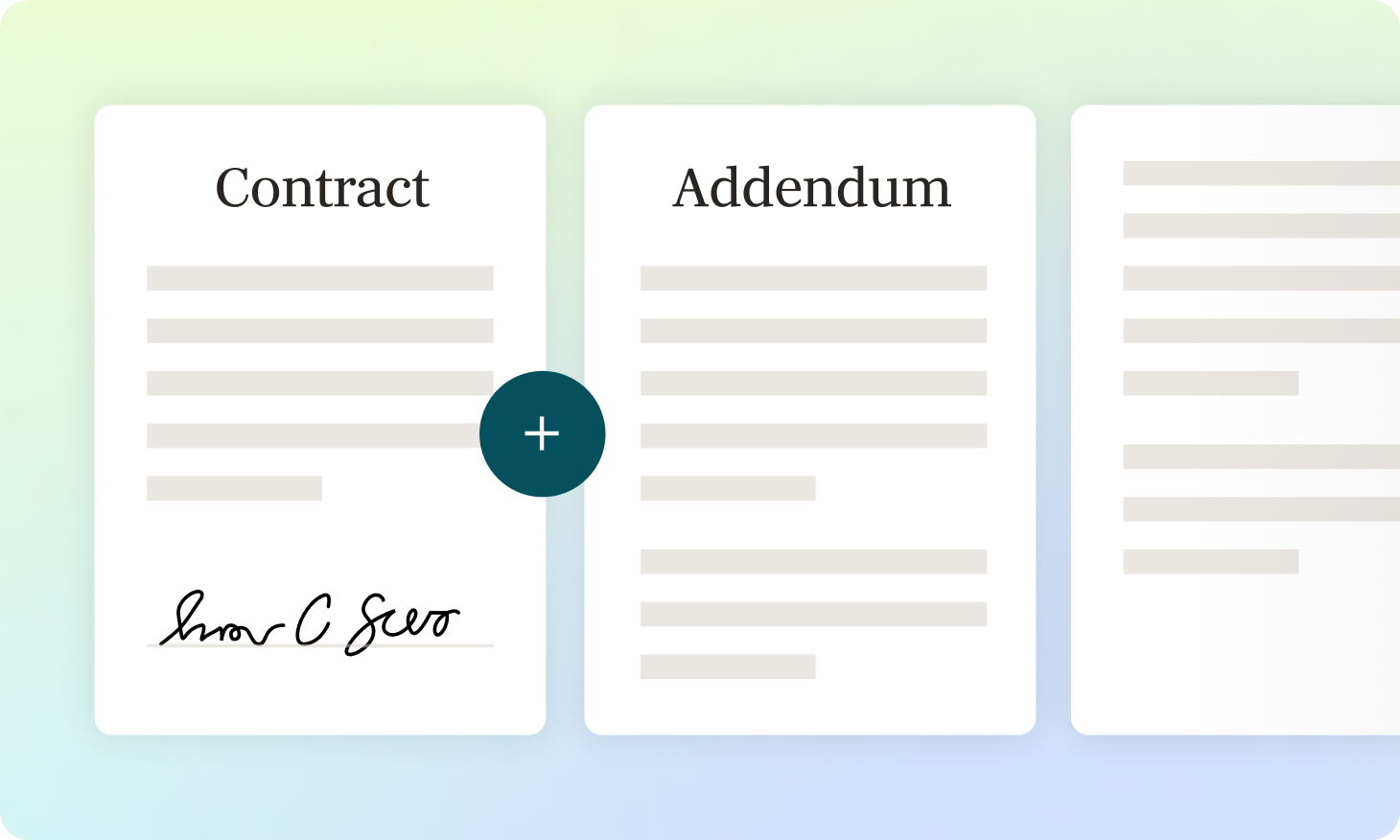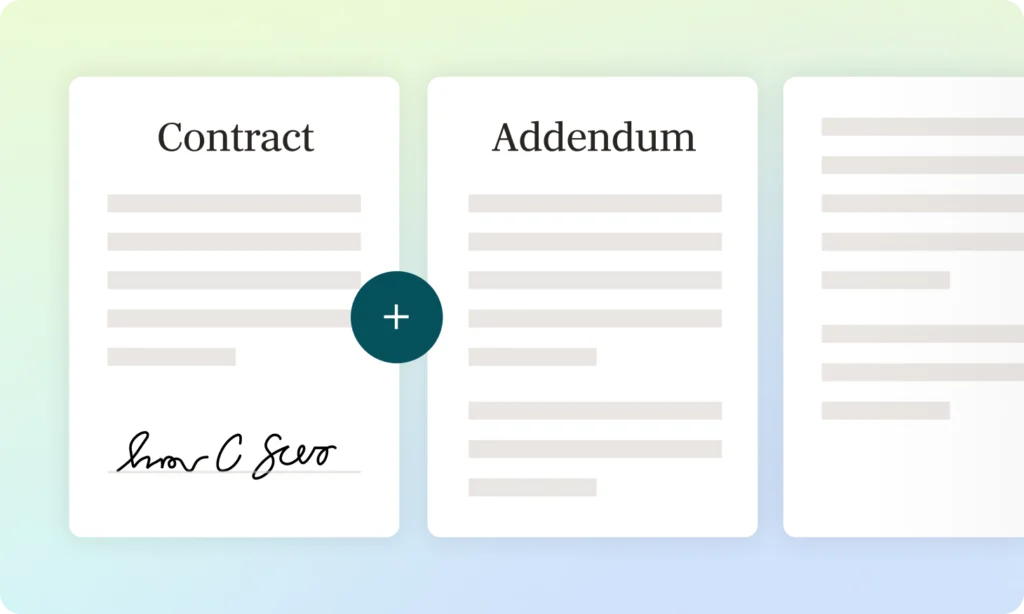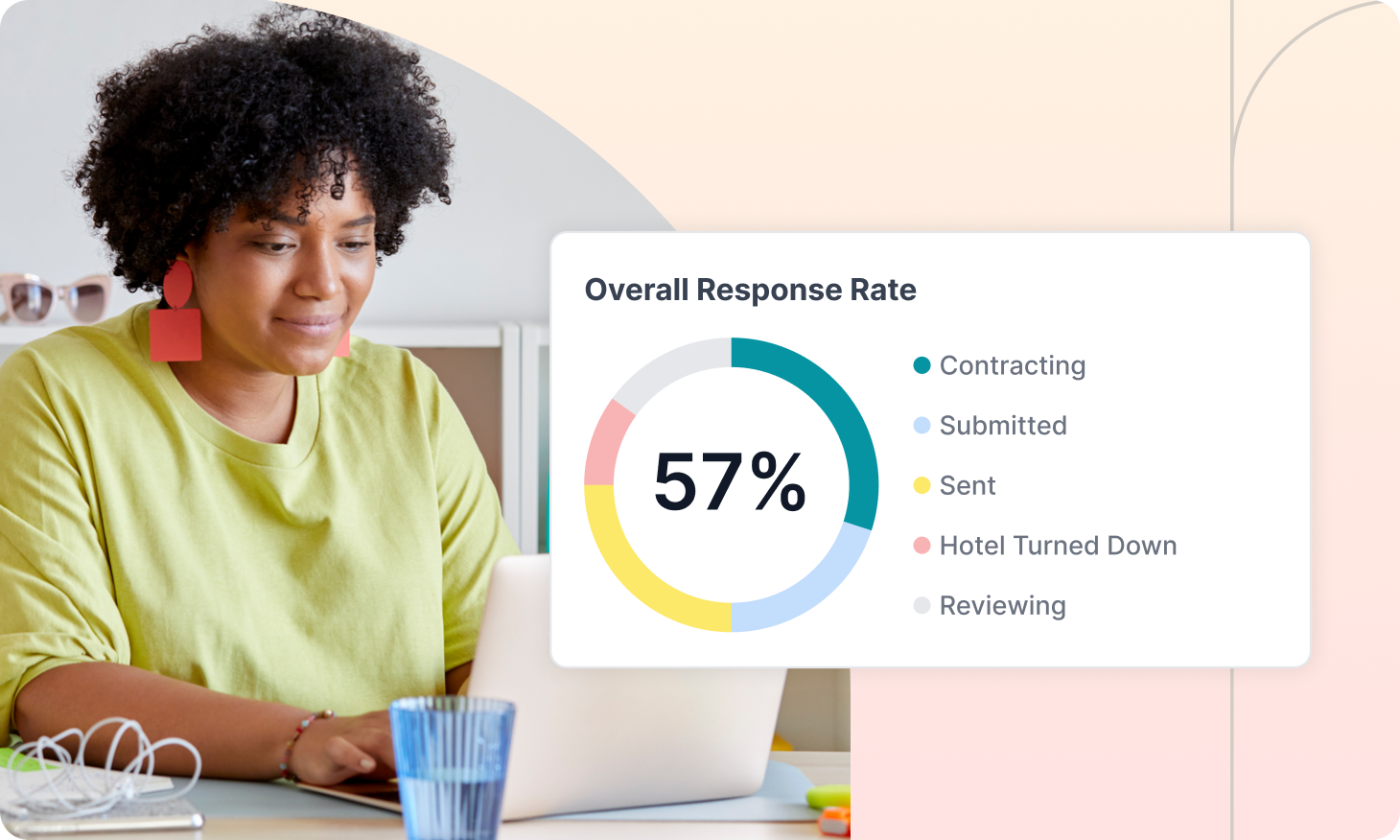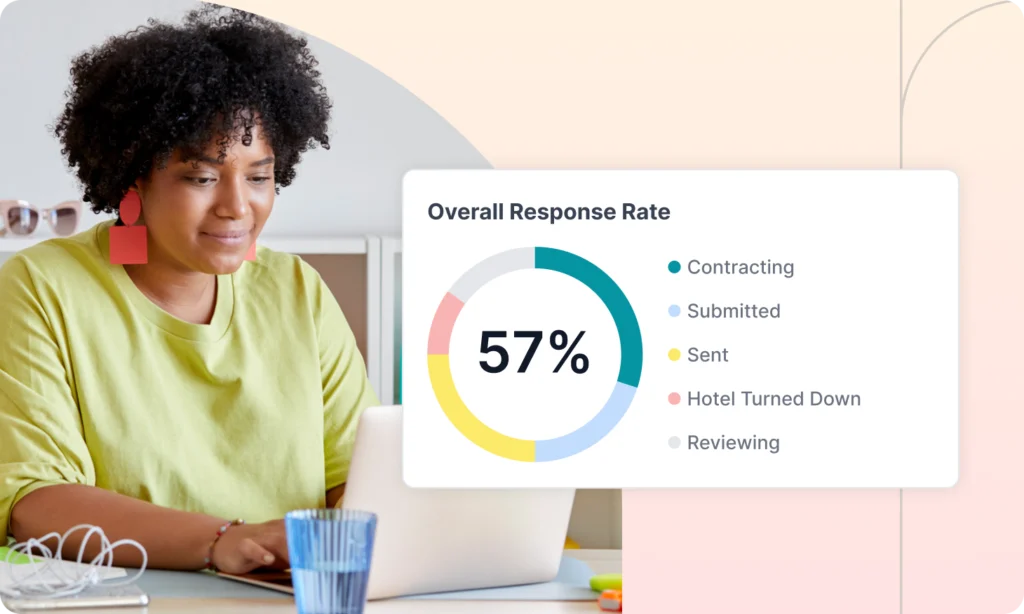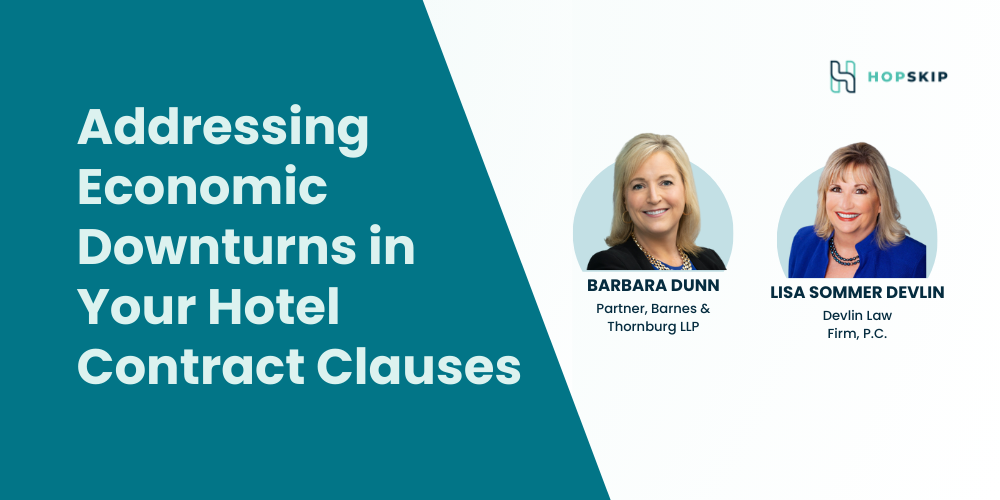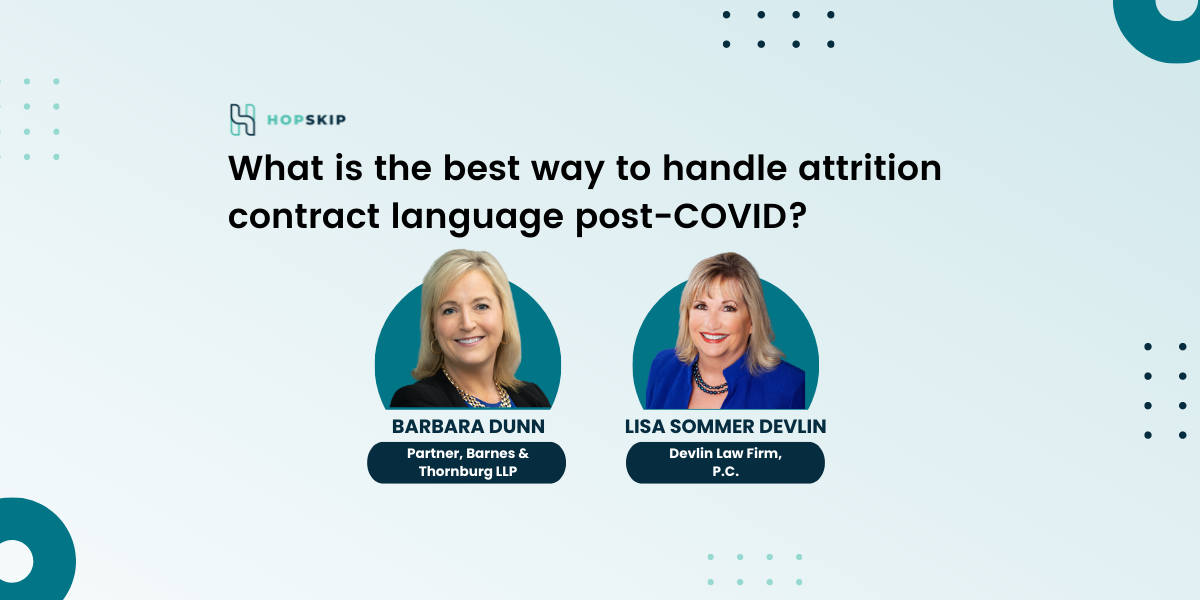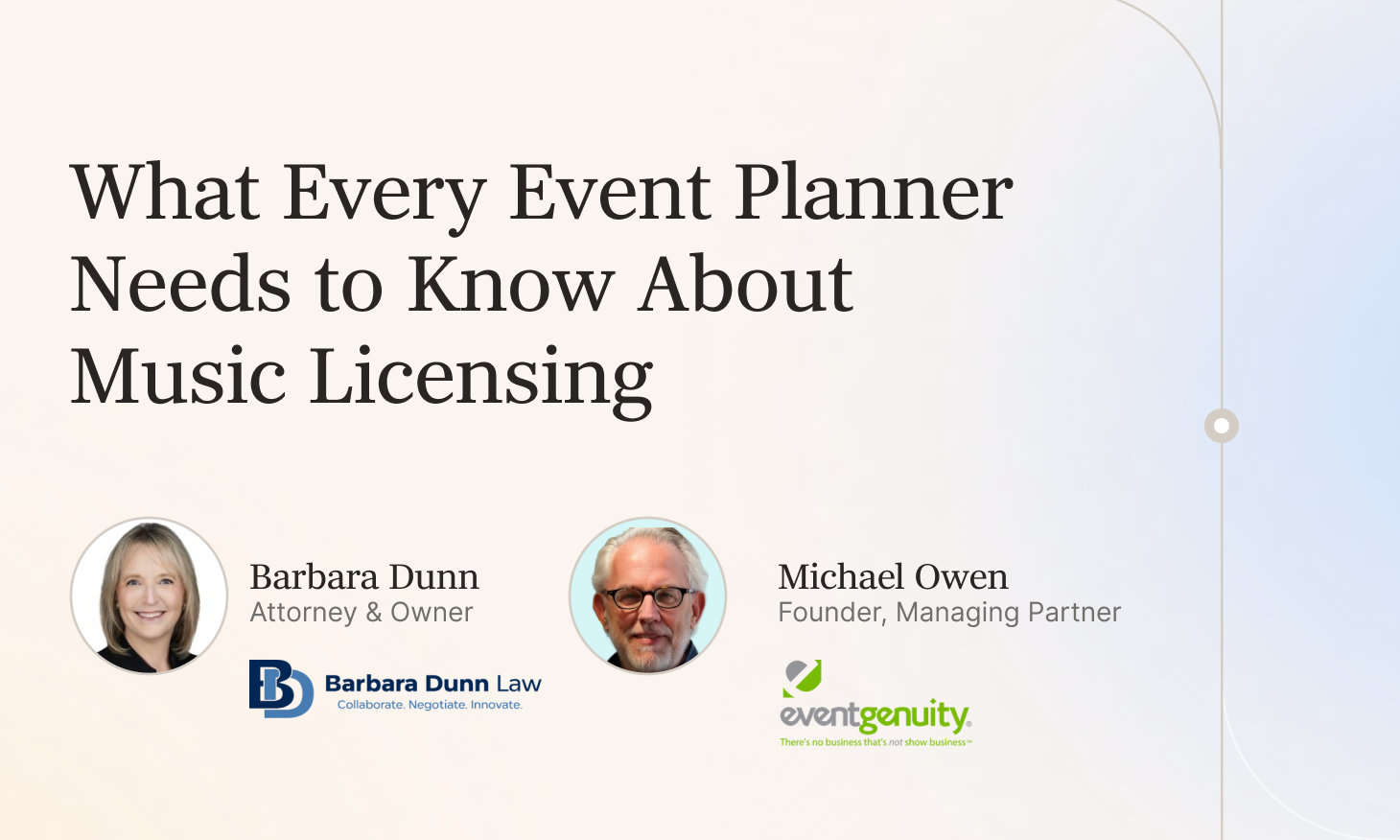
There’s nothing quite like music to set the tone for an event. Whether it’s energizing a room before a big keynote or filling awkward silence between sessions, the right track can turn a meeting into a memorable experience. But with great playlists come great responsibilities—specifically, legal ones.
That’s the message industry veterans Barbara Dunn (barbaradunnlaw.com) and Michael Owen (EventGenuity) drove home during their recent webinar, “Legalese with the Lady: Music Licensing for Business Meetings.” They pulled back the curtain on music rights and offered some much-needed clarity for event planners. Here’s a quick walkthrough of their most practical takeaways.
Why You Can’t Ignore Music Licensing
Music might feel like background filler, but it plays a starring role in the emotional arc of an event. As Owen put it, “Imagine your CEO being announced on stage without music. It just feels… off.” That energy—the lift, the excitement—is why music is so valuable. And when something has value, it’s protected.
Dunn reminds planners that music is considered intellectual property, just like photos or artwork. “Our laws are built to protect creative works,” she says. That means you’re dealing with something someone owns every time you hit play.
So, What Exactly Is a Music License?
Think of a license as a formal permission slip. You’re not buying the music itself—you’re paying for the right to use it in a specific context. This applies whether using live musicians, playing a recorded track, or piping in hold music during a breakout session.
Owen breaks it down simply: “You want to borrow music—and you want to do it the right way.” Without the proper license, you could be on the hook for more than just a slap on the wrist.
The Hidden Risk: Who’s Responsible?
Here’s where things get real. If unlicensed music is played at an event, it’s not just the DJ or AV team who’s in trouble. It could be the event host, the planner, the venue, or even the brand sponsoring the event.
Dunn doesn’t mince words: “Vicarious liability is real. If you’re in charge, you could be held responsible.” That risk isn’t just theoretical—it could mean fines, lawsuits, or reputational damage that’s hard to shake off.
Blanket Licenses: The Smart Shortcut
The good news? You don’t need to license every song individually. Organizations like ASCAP and BMI cover most commercially available music—up to 98% of what you’d ever want to play. A “blanket license” from them gives you wide-ranging coverage across thousands of songs.
Sure, it might feel like extra paperwork. But Owen puts it in perspective: “It’s like hiring an EMT for your event. Hopefully, you never need it. But if you do, you’ll be glad they’re there.”
Myths That Trip Up Planners
One of the most common misconceptions? That private, invitation-only events don’t count as public performances. Not true. As Owen explains, “The law sees any gathering beyond close family or friends as a public performance—even your corporate board meeting.”
There are only a few narrow exceptions, like religious services or in-person classroom teaching. Unless your event clearly falls into one of those buckets, assume a license is required.
Cost vs. Consequences: It’s Not Even Close
A lot of planners hesitate over the cost, especially for smaller meetings. But as Dunn points out, “It’s easier—and cheaper—to keep you out of trouble than to get you out of it.” Fines for infringement can stack up fast, not to mention the legal headaches and PR mess.
Compared to the price of a license, it’s just not worth the risk.
The Takeaway: Respect the Music, Respect the Process
Music can be the soul of an event—but only if it’s used responsibly. As Dunn says, “Licensing protects the rights of artists and keeps your event compliant.” Owen, reflecting on the role music plays in his own life, sees it as more than entertainment: “Music enhances every moment.”
Bottom line? Don’t let licensing confusion derail your event. With a little planning and the right permissions, you can amplify your impact—without stepping on any legal landmines.
Wrap-Up: Stay Tuned, Stay Legal
Music has the power to elevate every moment of your event—but only when it’s used legally and thoughtfully. As a planner, you’re not just curating experiences; you’re managing risk, protecting your clients, and upholding the creative rights of artists.
So before you press play at your next meeting, make sure you’ve got the proper licenses in place. It’s a small step that goes a long way toward keeping your events compliant, professional, and unforgettable.
Want more insights on avoiding legal pitfalls and planning smarter events?
Explore free resources and expert tips at the Hopskip Sourcing Academy.
